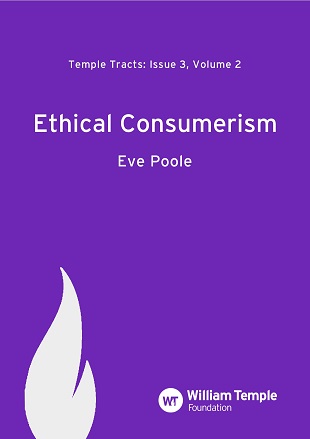I visited Rosslyn Chapel recently, just south of Edinburgh. It’s an Episcopalian church, still very much liturgically inhabited, and the home of a rather splendid cat called William. Most people know about Rosslyn because it features in Dan Brown’s The Da Vinci Code (which has been a great boon for the church, now fully restored thanks to a highly successful fundraising campaign which included a donation from the film-star Tom Hanks). It is covered with intricate carvings, and has been associated with the Freemasons and the Knights Templar. It is a veritable feast for conspiracy theorists. We didn’t find the Holy Grail or the tomb of St Mary Magdalene there, but we did find a riddle:
What is greater than God and more evil than the devil? The poor have it, the rich need it; and if you eat it, you’ll die.
The answer is: Nothing. Nothing is greater than God, nothing is more evil than the devil; the poor have nothing and the rich need nothing. If you eat nothing, you’ll die.
I‘ve been thinking about nothing a lot. Is there nothing we can do about the mess that the world seems to be in? Sometimes it’s easy to feel powerless, and as though we are nothing. But nothing is rather a fabulous idea. For centuries, it has kept many a philosopher in socks. In mathematics, the number zero was an extraordinary invention and a paradigm shift. Apart from everything else, without it, we wouldn’t have been able to develop the computer programmes that are allowing you to read this.
Nothing can be important. Consider this story, which the Archbishop of York once told to General Synod:
There once was a Bedouin who had three sons and 17 camels. In his will he left half of his 17 camels to his elder son, one-third to his second son and one-ninth to his youngest son. When the father died, the children attempted to divide the camels according to their father’s will, and struggled to divide 17 camels into one-half, one-third and one-ninth. They went to consult a very wise old man, who said: ‘Simple. I will lend you my camel. It will be the 18th, and you can get what your father wanted you to have.’ Eureka! Half of 18 is nine, a third of 18 is six, and a ninth of 18 is two, making a total of 17. The sons divided up the camels, then the wise old man took his camel home.
So you see, sometimes your nothing can be something rather magical. You just have to be on hand to add your vital nothing at the crucial moment. ‘It was nothing’ we say as we help someone blind across the road; ‘it was nothing’ we say as we take a bereaved neighbour flowers; ‘it was nothing’ we say as we tip some extra pasta into the foodbank collection bin. These nothings all add up. They really help.
But is this theology? At a previous William Temple Foundation conference, I rather arrogantly announced that one could chart the whole of theology ever in a business school-style two by two matrix. The matrix contrasts theology that is about ‘content’ and theology that is about ‘process’ with theology that is primarily addressed to the church and theology that is addressed out into the world more generally. Three of the boxes this produces are awash with theology: theology about what to believe, theology about how to do theology, and theology about how one ought to talk to those of other beliefs.
One, however, is characterised by nothing. It is hard to find any texts that fit into this category. So what is happening theologically in this box? My answer at the conference was about the demonstration of theology – the logos spoken and enacted not just written down; incarnated, like the person of Jesus. This is public theology, and this is where all of your ‘it was nothings’ sit, the everyday expression of your faith out in the world: to the refugee, the homeless, the lonely, the stranger. Every gesture, and every time you choose not to act, that is your public theology, for good or ill.
Like us, a chapel like Rosslyn fits in the public theology box, because it witnesses to the physical world that God is here on earth. As we are told in Romans, we are God’s temple too. We believe that our very being bears witness, so we can never just be nothing. Zero was paradigm-shifting because it was suddenly a placeholder, to enable mathematics to develop, like that 18th camel. You are God’s placeholder. You aren’t nothing, so be something. And as they say, if you think you’re too small to make a difference, you’ve never been in bed with a mosquito.
Eve Poole is an Associate Research Fellow of the William Temple Foundation
Ethical Consumerism by Eve Poole
is available to download NOW – click here >>
More from our bloggers:
Occupy Five Years On: A Squandered Moment or a Lasting Movement?
by Chris Baker
The Church’s Damning Edicts on Sexuality Challenge What It Means to be Human
by Jo Henderson-Merrygold
Let the Little Children Come to Me: Christian Approaches to Foster Care and Adoption
by Ruth Wilde
It Engages and Enrages the Political Agenda, But What on Earth is Religion?
by Greg Smith
More blogs on religion and public life
- “Barnabas Thrive” led by Revd Dr Paul Monk, is awarded Kings Award for Voluntary Service
by Matthew Barber-Rowell - How could a Temple Tract have had even more traction?
by Simon Lee - Remembrance Day: Just Decision Making II
by Matthew Barber-Rowell - Trustees Week 4th Nov – 8th Nov 2024
by Matthew Barber-Rowell - Some ancient wisdom for modern day elections
by Ian Mayer

Discuss this